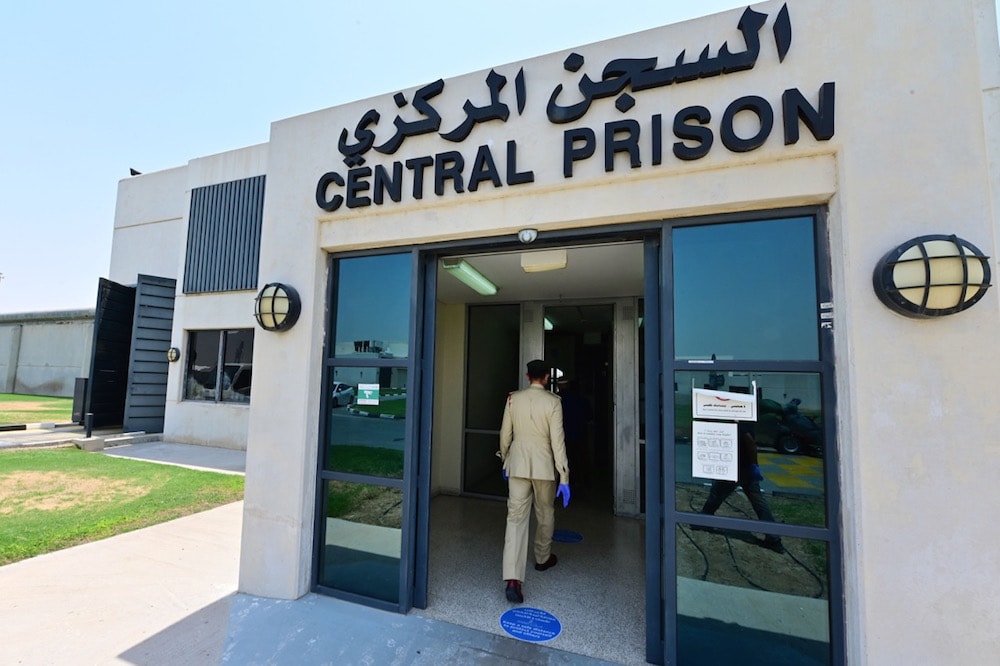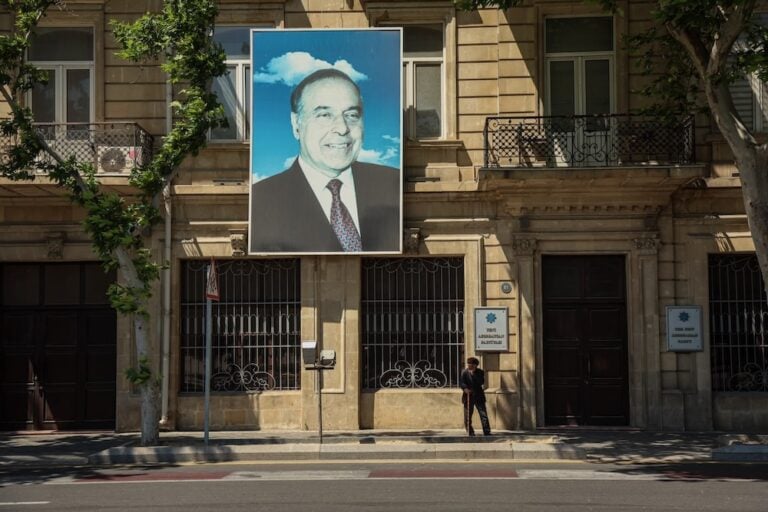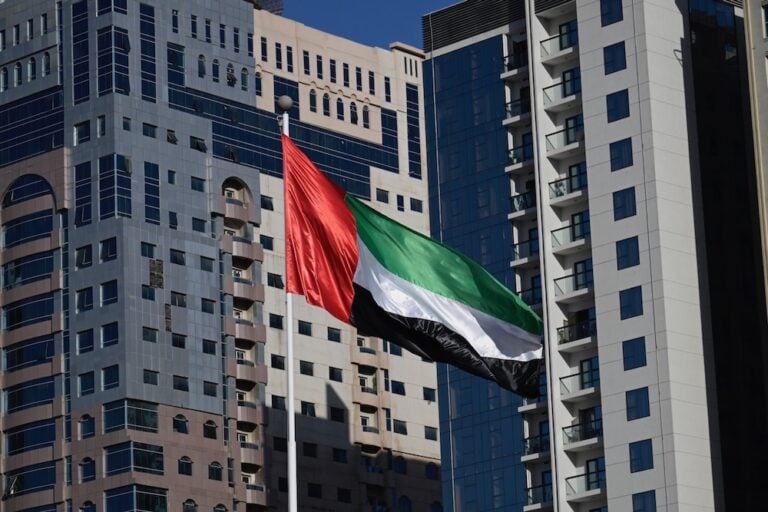The recent death of Jordanian journalist Tayseer Al-Najjar from health complications contracted during a prison term in the UAE has raised alarm over the fate of thirteen prisoners of conscience, including two women activists, who remain in Emirati prisons despite serving their sentences.
This statement was originally published on gc4hr.org on 22 February 2021.
On every religious or national occasion, the higher authorities in the United Arab Emirates (UAE) issue decrees to pardon convicted prisoners, a tradition that has been in place since the establishment of the state in 1971. The Gulf Centre for Human Rights (GCHR) protests against the authorities’ continued failure to release prisoners of conscience, and to hold them long past the end of their sentences. One such prisoner, Jordanian journalist and writer Tayseer Al-Najjar, died two years after finally being freed. Meanwhile, the whereabouts of an Emirati Princess are unknown after videos were released in which she claimed she was being held under house arrest.
On 22 April 2020, the UAE Ministry of Justice published on its official website the following: “His Highness Sheikh Khalifa Bin Zayed Al Nahyan, President of the State, may God protect him, ordered the release of 1511 inmates from correctional and penal facilities who were sentenced in various cases. And His Highness ensured that the fines were paid on the occasion of the blessed month of Ramadan.” This decision, like its predecessors, did not include any prisoners of conscience who were sentenced or detained for their peaceful and legitimate human rights activities.
Activists who remain in prison counselling section despite having completed their sentences
Thirteen activists and prisoners of conscience, including two women activists, are in prison despite having completed their sentences and the actual date of their release has passed. The UAE authorities refuse to release them, claiming that they pose a threat to national security and are in need of rehabilitation and therefore have been transferred to the counselling section of the prison.
This is not only inconsistent with international human rights law, but also contradicts the UAE Penal Code itself, which requires the authorities to release convicts upon the expiration of their sentences. The terrorism law cannot be applied to them because it is well known to all that they are not terrorists but peaceful prisoners of conscience. Usually, convicted prisoners are released after serving two-thirds of their sentence through the aforementioned pardons.
The names of the prisoners who completed their sentences but remain in prison are as follows:
1. Amina Al-Abdouli: She was arrested on 19 November 2015, and sentenced to five years’ imprisonment. Her sentence expired on 19 November 2020.
2. Maryam Al-Balushi: She was arrested on 19 November 2015, and sentenced to five years’ imprisonment. Her sentence expired on 19 November 2020.
3. Ahmed Mohammed Al-Mulla: He was arrested on 1 May 2014 and sentenced to three years’ imprisonment. His sentence ended on 1 May 2017.
4. Faisal Ali Al-Shehhi: He was arrested on 1 May 2014 and sentenced to three years’ imprisonment. His sentence ended on 1 May 2017.
5. Abdullah Ibrahim Al-Helou: He was arrested on 22 April 2014 and sentenced to three years’ imprisonment. His sentence ended on 22 April 2017.
6. Saeed Abdullah Al-Buraimi: He was arrested on 26 March 2013 and sentenced to five years’ imprisonment. His sentence ended on 26 March 2018.
7. Abdulwahid Hassan Al-Shehhi: He was arrested on 26 March 2013 and sentenced to five years’ imprisonment. His sentence ended on 26 March 2018.
8. Khalifa Rabiaa: He was arrested on 23 July 2013 and sentenced to five years’ imprisonment. His sentence ended on 23 July 2018.
9. Abdullah Abdulkadir Al-Hajri: He was arrested on 16 July 2012 and sentenced to seven years’ imprisonment. His sentence ended on 16 July 2019.
10. Mahmoud Hassan Al-Hosani: He was arrested on 16 July 2012 and sentenced to seven years’ imprisonment. His sentence ended on 16 July 2019.
11. Omran Ali Al-Harthi: He was arrested on 16 July 2012 and sentenced to seven years’ imprisonment. His sentence ended on 16 July 2019.
12. Mansour Hassan Al-Ahmadi: He was arrested on 12 October 2012 and sentenced to seven years’ imprisonment. His sentence ended on 12 October 2019.
13. Fahd Abdulkadir Al-Hajri: He was arrested on 2 March 2013 and sentenced to seven years’ imprisonment. His sentence ended on 2 March 2020.
Writer and journalist Tayseer Al-Najjar dies as a result of ill-treatment in prison
The victim of a well-known case of a prisoner being held past the release date, Jordanian writer and journalist Tayseer Al-Najjar, 45, died at dawn on 19 February 2021, as a result of health complications caused by diseases contracted during a prison term in the UAE.
On 3 December 2015, the State Security Service prevented Al-Najjar from traveling to his country, Jordan, and summoned him to appear before the Abu Dhabi Police on 13 December 2015, when he was arrested and forcibly disappeared for a period of 45 days before the official announcement of his arrest.
In March 2017, the Federal Supreme Court in the UAE convicted Al-Najjar under Article 29 of the UAE Information Technology Crime Law and sentenced him to three years of imprisonment and a fine of 500,000 dirhams (USD$136,000) for “insulting state symbols”. He was sentenced for posts he had written on his Facebook page before moving to the UAE to work as a cultural correspondent for the newspaper “Al-Dar” in April 2015, in which he criticised the UAE’s role in the war on Gaza in 2014.
Al-Najjar’s sentence ended on 13 December 2018, but he remained imprisoned due to his inability to pay the large fine and he was only released on 12 February 2019 after the Emirati authorities decided to exempt him from the fine.
The UAE authorities flagrantly violated Al-Najjar’s rights to a fair trial and due process, and detained him without allowing him to contact a lawyer, not even during his interrogation before he was brought to trial in January 2017.
After his release, Al-Najjar wrote several times about his suffering during his imprisonment in the UAE, but he did not provide details because, according to reliable sources, he received death threats from Emirati officials.
Less than two weeks after his release, he wrote the following comments: “The security prison in which I lived in Abu Dhabi, if I wanted to praise it, it was called a prison … it is in fact a prison … This prison still accompanies me, it is not easy to get rid of the cruelty, pain, injustice and oppression of three years and two months, within a period of 12 days … is it?”
He also wrote, “I didn’t believe I was out of jail yet.”
As to those who tortured and ill-treated him, he said, “I do not forget the features of the faces until I judge them before God.”
Al-Najjar’s wife, Majida Al-Hourani, stated that he had suffered from many ailments since his release from prison and his return to Jordan, where he was suffering from migraines and could not hear in one of his ears, in addition to dental problems and many other health problems that she said he developed during his detention in the UAE.
While sharing the grief of family, loved ones and friends of the writer and journalist Tayseer Al-Najjar, over his loss, GCHR condemns in the strongest terms all the repression and violations committed against Al-Najjar by the authorities in the Emirates, especially the notorious State Security Service, as his imprisonment represented a flagrant violation of freedom of expression and fair trial, and certainly hastened his death.
The Missing Princess: The story of Sheikha Latifa’s disappearance
The daughter of the ruler of Dubai, Princess Latifa Al-Maktoum, who tried to flee the country in 2018, subsequently sent secret video messages to her friends accusing her father of holding her “hostage” and stating that she feared for her life. In a video shared exclusively with the BBC, Sheikha Latifa said that Special Forces drugged her while she attempted to flee on a boat in 2018 and brought her back into custody.
Recommendations:
The Gulf Centre for Human Rights (GCHR) calls on the international community, especially the governments that have influence in the Emirates, such as the United States of America, United Kingdom and Canada, and those in the European Union, as well as United Nations mechanisms, in particular the relevant special rapporteurs, to immediately intervene to stop all these grave violations and to make visits to all detainees whose names are mentioned in this appeal, to ensure their health and physical safety, and to ensure their immediate and unconditional release.
We also urge the management of Manchester City’s Football Club as well as the team’s Fan Club itself to condemn these blatant violations by the ruling family in the Emirates, which owns the club, in an attempt to market itself with a civilised face abroad at a time when it is very harshly suppressing public freedoms inside the country.
GCHR also calls on the authorities in the UAE to:
- Close the counselling centres attached to prisons in the UAE and release all detainees who are being held in them without any legal basis and whose sentences have been served; and
- Abolish Article 40 of the Anti-Terrorism Law No. 7 of 2014, which allows people to be detained in counselling centres, without accusations or court rulings, for open years-long periods.



